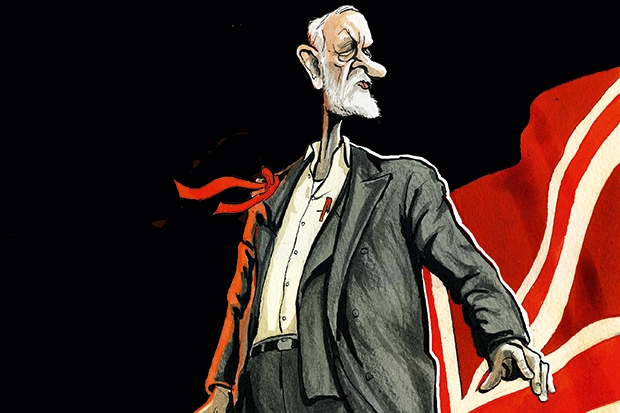Were I a Labour party strategist I wouldn’t be too distressed by the news that the party has lost 26,000 members since last summer. On the contrary, I would regard it as the possible beginning of a very long road back to power.
Until Jeremy Corbyn came along there was a received wisdom that modern political parties were becoming isolated from the views of the public as a whole because their once mass memberships had shrunk to a few party faithful. Not only has Corbyn disproved this theory, his experience suggests that the opposite might be the case: having a large membership is a hindrance to winning elections. If driving up party membership is the measure of success for a political leader, Corbyn has been one of the most successful ones in Europe since Adolf Hitler or Josef Stalin: he has nearly doubled Labour’s roll in less than two years, to make Labour the largest political party in Europe.
Yet hardly anyone, with the possible exception of himself, thinks it is going to help him win the next election: as his membership has gone up, so his poll ratings have collapsed. Having half a million members is no help at all if the political views of those people is at odds with the 10 million or so people you need to vote for you in order to win a British general election.
The ideal political party would have no members at all; it would have shareholders, whose sole interest was in it winning elections. Try to imagine if, say, a supermarket was run by members rather than by a board elected by shareholders. Instead of getting on with the business of making money, you would have a faction of vegans who wanted it to stop selling meat, an army of temperance campaigners wanted to close down the wine and beer aisle. There would be an anti-obesity wing who wanted the cakes and biscuits cleared out and a group of greens who only wanted it to stock food grown within a five-mile radius. The customers, meanwhile, would go elsewhere.
What we need is a new centre party formed and funded by a share issue, and which has no fancy principles; its sole purpose would be to gain power and then govern in such a way as to achieve re-election in the contest after that. Arguably, Tony Blair created such a party, called New Labour. But then he was still weighed down by legions of frustrated socialists who eventually proved his undoing.
There is one gap in my plan: how do you reward the shareholders for putting in their financial stake? I suspect that tax cuts for party members might just prove illegal – and wouldn’t help to bring about electoral success in any case. Maybe it would be reward enough to know that the country would no longer be run by dewy-eyed idealists, political activists and tribalists. But if anyone has any ideas I would love to hear them.







Comments